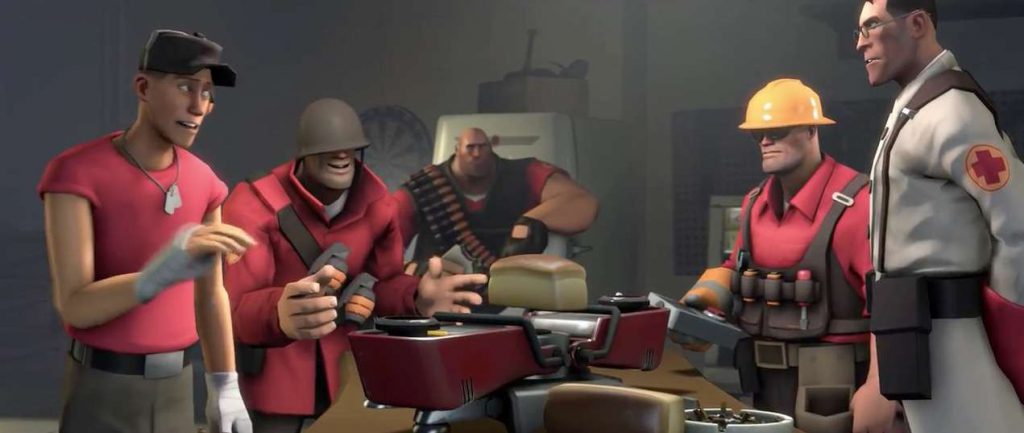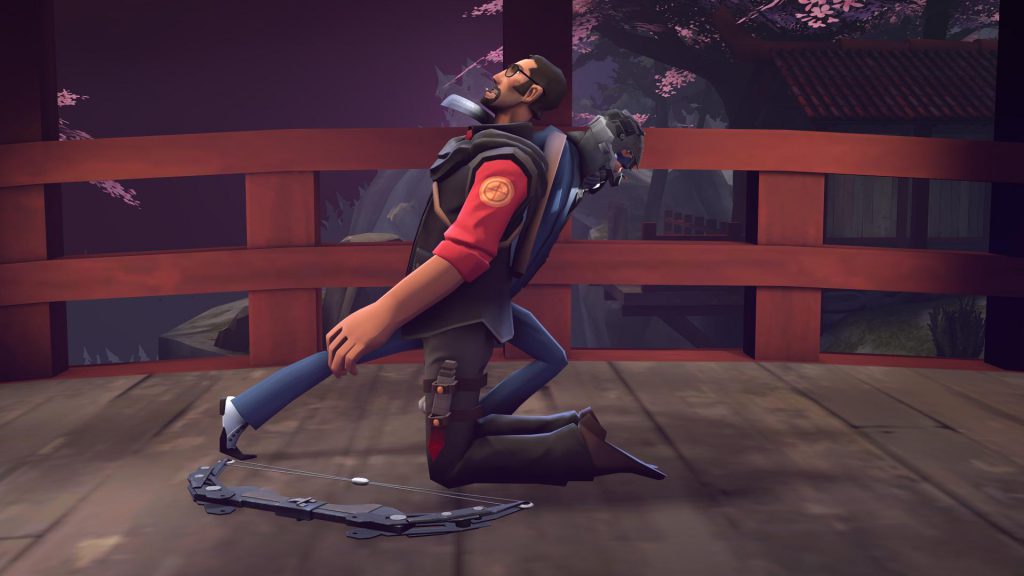TF2’s Shorts are Better Written Than Overwatch’s
Uh, hi. Aabicus and I were discussing elements of writing in both Overwatch and TF2, specifically in terms of the two Overwatch shorts focusing on Winston and on Widowmaker in comparison to Expiration Date. I suggest you watch them and take a look at how the action interacts with their respective narratives, which is what I will focus on here. These are pulled directly from a Skype discussion, so no examples are currently cited.

In Expiration Date, the action is tied in with the character’s deep insecurities, their impending mortality, their desire for human connection, and their hopes for better lives despite imminent death, all tied in with satisfying humor.
The recent Overwatch shorts have had action as their base. The action is not driven by the characters; the characters are driven by, granted, really cool action sequences. But this leaves something to be desired. When young Winston plays with his teacher’s glasses, it’s cute, and it’s feelsy. There’s nothing wrong with that, but it’s not relevant enough to the larger narrative to be satisfying or as a means that pushes the action along — the action is happening regardless of what the characters feel.
I consider the Winston short better than the Widowmaker short. The Widowmaker short had neat action sequences and an interesting premise, but the dialogue was poor. Expiration Date quickly set up a premise that allowed it to have both humor and meaningful character interaction, whereas the Widowmaker short set up for cheap one-off lines that didn’t actually do anything. Again, the action drives the narrative and the characters, rather than the characters driving the action. Which, if I wasn’t clear, is not satisfying, especially in mediums this short. It’s one thing if you’re Lord of the Rings and have thousands of years of lore behind the world. World-driven narrative in stuff like that is p. cool. But for this? It needs to have meaningful characters that operate on their insecurities and their questions rather than in service of action.

The recent Dragons short was better, they get a gold star. But the core of the issue was how they handled their exposition. There was an exposition dump at the beginning (which is usually fine if it’s well incorporated, which it was) but the dialogue also kept revealing things left and right that were required knowledge before having an emotional investment in the story. “Only the (family name) can control the dragons” is the most obvious issue here, what with the action already having occurred, the character having invested emotion in it, but not the audience. (That’s not to say that when character know something the audience doesn’t is bad, but it needs to be purposeful and adjusted for the story — this is great for a lot of twists.)
So the issue is: there is both an exposition dump and and exposition throughout, which leads to rough dialogue that breaks the action instead of supporting it.
Additionally, I’m not really sure if this was just me, but was that twist a surprise? Two characters are in the story and two characters are interacting, and the brother is pretty clearly stating the brother’s desires, which people don’t do if they’re assassins.
The information about the family, about the character’s desire to honor him, etc., should have been presented in the exposition dump in the beginning and it would have been pretty much alright. The dialogue would then be free to express the character’s feelings in the moment rather than presenting things in the past in the present, and would be much more relevant to the action at hand rather than taking breaks in the sequence’s pacing to give the audience information that’s relevant to an action that just occurred. (In case this wasn’t clear, characters presenting their thoughts of the moment is much more natural than presenting thoughts about a thing past/things that they both assuredly knew, ie, that only that family can control the dragons, or “I know that you come here the same day every year”)
